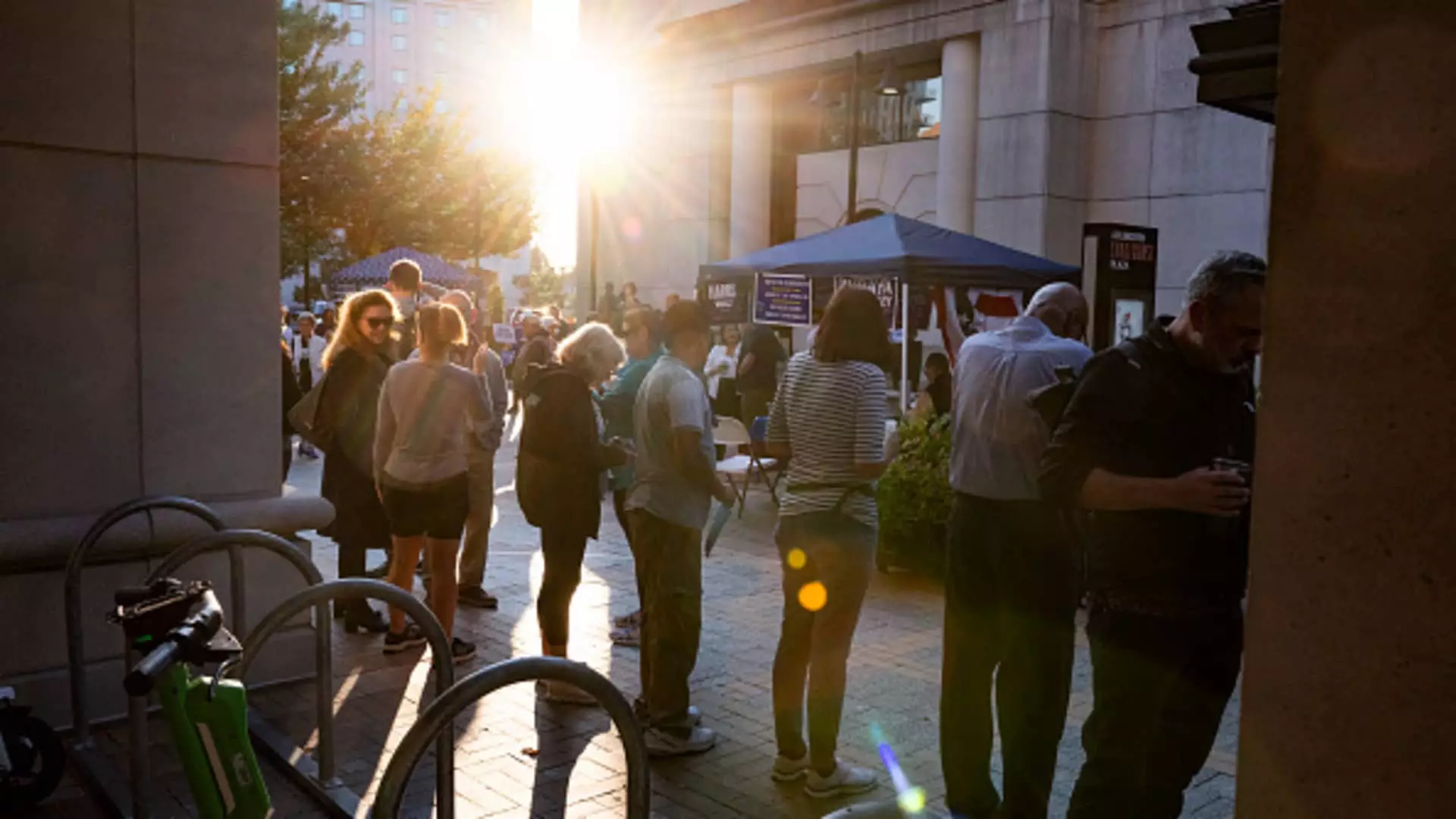In a significant judicial decision, a federal judge has placed a block on Virginia’s efforts to purge its voter rolls of suspected noncitizens. Judge Patricia Giles intervened after the U.S. Department of Justice (DOJ) challenged the state’s approach, claiming it violated federal laws pertaining to voter registration. The ruling comes just days before the highly anticipated Presidential election, stirring a complex debate about voter eligibility and representation in democratic processes. By mandating the reinstatement of over 1,600 individuals previously removed from the rolls, the judge has sparked questions about the integrity and management of voter records.
The timing of this ruling is particularly contentious. Governed by federal regulations, states are prohibited from systematically disqualifying voters within a 90-day window leading up to an election. This legally mandated grace period is designed to protect citizens’ voting rights and uphold electoral fairness. The DOJ successfully argued that Virginia’s Governor Glenn Youngkin’s order to purge these voter rolls, issued on August 7, was strategically timed to circumvent these legal protections and possibly influence the upcoming election.
The stipulation that persons self-disclosing their status as noncitizens through Department of Motor Vehicle forms could be removed from voter rolls raised alarms. In her judgment, Judge Giles pointedly questioned how many citizens might have been inadvertently disenfranchised through this administrative maneuver. Reports indicating that numerous individuals, including confirmed U.S. citizens, have been removed underline the precarious balance between safeguarding against fraudulent voting and ensuring every eligible voter’s access to the polls.
Following the ruling, there has been a swift political response from the Youngkin administration. The Governor portrayed the court’s decision as a threat to electoral integrity, suggesting that the reinstatement of individuals who had identified themselves as noncitizens could lead to illegal voting. He characterized this ruling as peculiar and politically motivated, emphasizing the need for state-level control over voter registration processes. His plans to appeal the judge’s decision to the Fourth Circuit Court of Appeals further illustrates the administration’s commitment to this contentious issue.
Youngkin’s rhetoric highlights a broader national conversation regarding voter suppression and the methodical systemic review of who should be allowed to vote. While the concern over noncitizen voting is prevalent among certain political factions, it raises a critical question: how can states ensure genuine electoral security without disenfranchising legitimate voters?
This case exemplifies the tensions inherent in managing voter eligibility in a politically charged environment. As the nation approaches the Presidential election, the implications of these decisions are profound. Ensuring that legitimate voters are not mistakenly purged from rolls is as crucial as preventing noncitizen voting. Engaging in sensitive and inclusive discussions about how to uphold voter rights without compromising the integrity of the electoral process remains a pressing challenge for lawmakers and judicial authorities alike.
As Virginia prepares for a tight electoral contest marked by significant national attention, this judicial clash over voter rolls underscores the importance of protecting every individual’s right to vote while maintaining the sanctity of the electoral system itself.



Leave a Reply